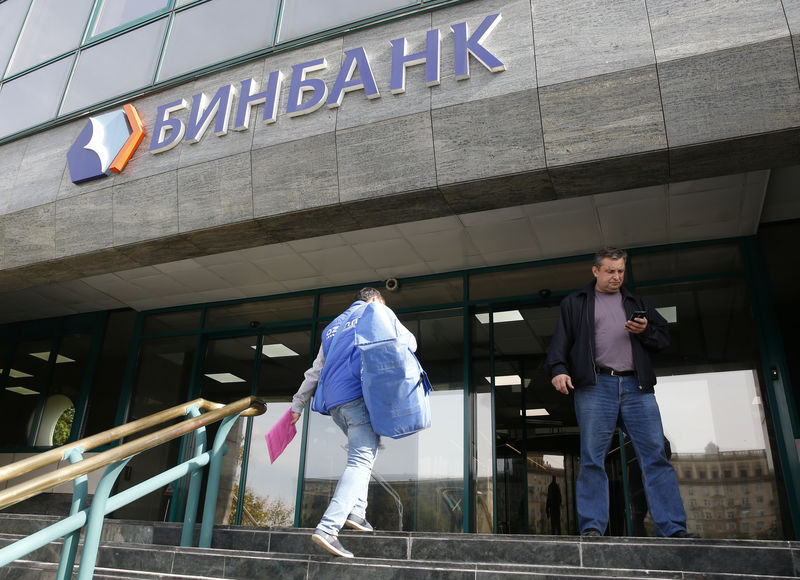By Tatiana Voronova
MOSCOW (Reuters) - Russia's central bank is in talks with oil tycoon Mikhail Gutseriyev over 140 billion roubles ($2 billion) his family owe after a banking group they owned was bailed out two years ago, four sources familiar with the talks said.
If agreed, the settlement deal would allow Gutseriyev and his brother, Sait-Salam, to avoid a potential lawsuit from the central bank, two of the four sources said. The central bank has used legal action in attempts to recover losses relating to the bailouts of two other banks, Otkritie and Promsvyazbank.
The central bank rescued B&N bank and Rost bank, both part of the Gutseriyev family's Safmar business empire, along with privately-owned Otkritie and Promsvyazbank, in 2017.
The central bank has since spent more than 2 trillion roubles supporting Otkritie, B&N and Promsvyazbank. It aims to recover at least some of these funds from the ex-owners directly and through the courts, as well as by selling assets.
For B&N, the central bank provided a 57 billion rouble capital injection and it has stumped up another 800 billion roubles in liquidity for Rost bank.
According to the four sources, who are close to Trust bank, now Russia's "bad bank", and to the Gutseriyev family, the central bank, via Trust bank, is discussing a plan under which Mikhail and Sait-Salam Gutseriyev would pay 140 billion roubles to settle part of the central bank's bailout costs.
The sources did not explain how the 140 billion rouble figure was calculated by the central bank.
Three of the four sources said that Mikail Shishkhanov, Mikhail Gutseriyev's nephew, who was overseeing the family's banking business, will not be part of the debt deal.
Gutseriyev and Shishkhanov have already transferred some of their assets to the central bank following B&N's bailout. The sources said the Gutseriyev family could pay the central bank back in cash and assets over the next five years.
"This is a very good deal for Gutseriyev," said one of the four sources, who is close to Gutseriyev, adding that the deal with the central bank, if reached, would allow him to avoid a court case.
Safmar, a holding company for the Gutseriyev's family assets, including B&N and Rost banks before their bailouts, declined to comment. The central bank did not reply to a Reuters request for a comment.
Trust bank declined to comment. Shishkhanov's cell phone was going straight to voicemail.
Vasily Pozdyshev, a deputy central bank governor, told Vedomosti newspaper in August that the central bank aimed to recover 750 billion roubles to 800 billion roubles from the banks' former owners using lawsuits, including from B&N.
It has already filed cases against the ex-owners of Otkritie and Promsvyazbank, claiming 290 billion roubles and 282 billion roubles, respectively.
Mikhail and Sait-Salam Gutseriyev are among co-founders of Safmar, which holds investments from oil to financial assets and real estate.
As part of the rescue of Russia's three largest private lenders, the central bank split the assets into "good" and "bad", with most of the troubled assets transferred last year to Trust Bank, formerly part of the Otkritie banking group.
B&N and Otkritie's healthy assets were merged and became FC Otkritie, which the central bank plans to sell in the next two to three years.
The central bank said at a time of the bailouts that they stemmed from the banks' adoption of aggressive business models at a time when Russian state banks were losing business following Western sanctions imposed over Moscow's role in the Ukraine crisis. The Russian economy was also being hit by weak oil prices.
